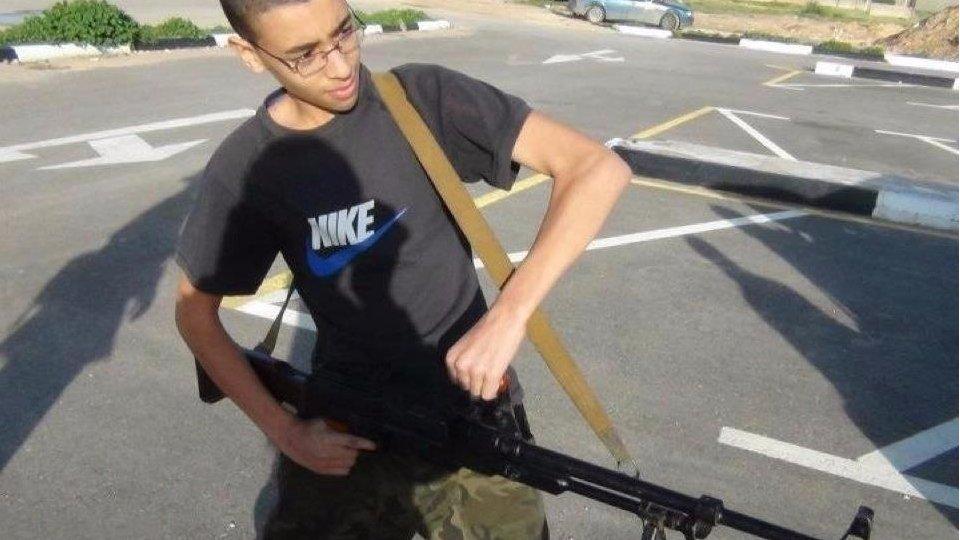Manchester Arena Inquiry: Help given to Saffie-Rose Roussos to be examined
- Published
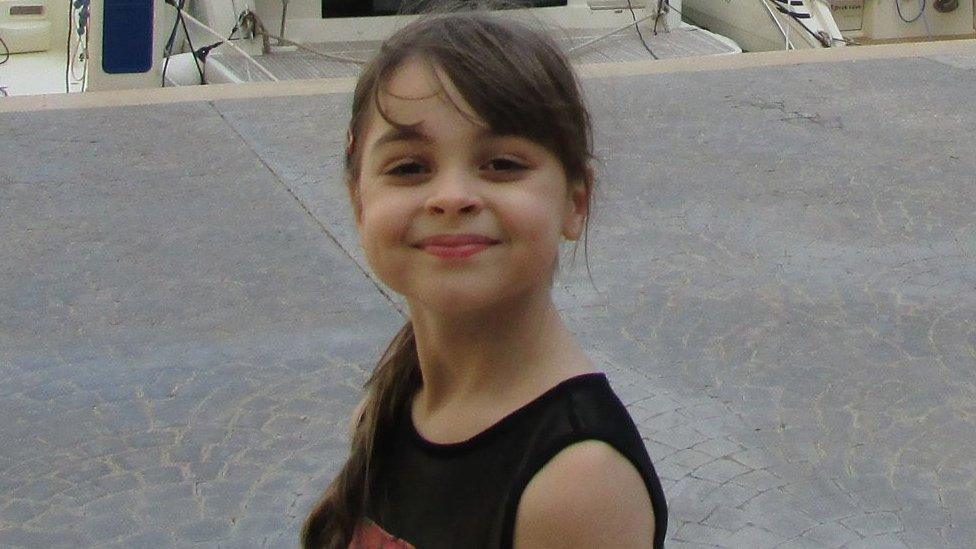
Eight-year-old Saffie-Rose Roussos was the youngest victim of the Manchester Arena bombing
The Manchester Arena inquiry will look at whether a "different response may have led to a different outcome" for the bombing's youngest victim Saffie-Rose Roussos, a hearing has been told.
It follows a report into the eight-year-old's death, which found she might have survived with better first aid.
The inquiry was previously told it was believed she could not have been saved.
However, the issue of her survivability will now be considered, alongside that of 28-year-old John Atkinson.
The hearing was the first in the phase of the inquiry looking at the emergency response on the night and was also told firefighters were kept away from the arena for two hours, only one paramedic was on the scene for the first 40 minutes of the aftermath and Greater Manchester Police (GMP) did not declare a major incident until the following day.
Paul Greaney QC, counsel to the inquiry, said it would "explore whether the emergency response really worked that night and, if it did not, whether that failure made any contribution to the extent of the dreadful loss of life that occurred".
Referring to a new report, commissioned by the parents of Saffie, who was from Leyland in Lancashire, Mr Greaney said her death would now be considered as part of this phase "on the basis of material which has been generated since we made our opening statement".
He said the inquiry will "deal with whether there is any basis for considering that a different emergency response may have saved lives".
"Most of those who died suffered injuries in the bombing that were - on the expert evidence - unsurvivable, even with current advanced medical treatment," he added.
"However, we will be drawing attention to the fact that in two cases a different response may - and we deliberately underline that word - have led to a different outcome."

Top row (left to right): Alison Howe, Martyn Hett, Lisa Lees, Courtney Boyle, Eilidh MacLeod, Elaine McIver, Georgina Callander, Jane Tweddle - Middle row (left to right): John Atkinson, Kelly Brewster, Liam Curry, Chloe Rutherford, Marcin Klis, Angelika Klis, Megan Hurley, Michelle Kiss - Bottom row (left to right): Nell Jones, Olivia Campbell-Hardy, Philip Tron, Saffie-Rose Roussos, Sorrell Leczkowski, Wendy Fawell
Twenty-two people were murdered and hundreds more injured when Salman Abedi detonated a bomb in the foyer of Manchester Arena as fans left an Ariana Grande concert on 22 May 2017.
The inquiry is looking at whether the attack could have been prevented, what happened on 22 May 2017, the security arrangements around the arena, the emergency response to the bombing and the radicalisation of bomber Abedi.
Describing the emergency response, Mr Greaney said audio recordings of police officers on the night included one urgently requesting paramedics at 23:02 BST, about 30 minutes after the bombing.
He said six North West Ambulance Service (NWAS) paramedics were at Victoria Station within those 30 minutes, and by 10 minutes later, "at least" eight ambulances and three off-duty doctors had arrived, but only one NWAS paramedic actually entered the foyer and only one injured person was taken out on a makeshift stretcher in that time.
He said that was "plainly something that will need to be closely examined", adding that it was "relevant to note that it did not take long at all for concerns [about the emergency response] to begin to emerge".
"Indeed, that very night, some of those on the ground were to experience and express frustration - even extreme frustration and anger - about how events unfolded," he added.
"We expect to receive evidence that many firefighters still feel a deep sense of frustration that they were unable to play a role that they were both trained and willing to play in responding to the arena attack."
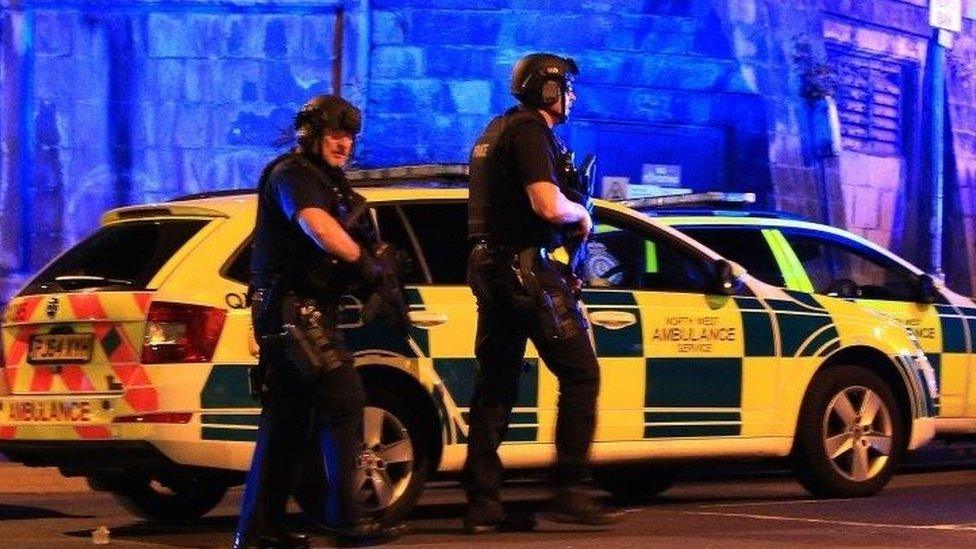
Hundreds were injured in the bombing at the end of an Ariana Grande concert
Firefighters had gathered at a fire station three miles from the arena but they did not attend the scene until two hours and six minutes after the attack.
The inquiry heard Greater Manchester Police declared Operation Plato, a pre-agreed emergency response to a suspected marauding armed terrorist, which meant Greater Manchester Fire and Rescue Service (GMFRS) kept its officers away from the area in accordance with national guidance.
Mr Greaney said both the declaration of Operation Plato and the failure of firefighters and paramedics to enter the foyer "in significant numbers" after the blast were two important areas to explore.
"That failure was, in the opinion of the experts, of command, not individual responders," he said.
He added that experts also had "significant concerns about co-operation and co-ordination between different emergency service agencies".
The inquiry continues.

Why not follow BBC North West on Facebook, external, Twitter, external and Instagram, external? You can also send story ideas to northwest.newsonline@bbc.co.uk, external
Related topics
- Published7 January 2021

- Published21 October 2020

- Published3 November 2022

- Published7 September 2020
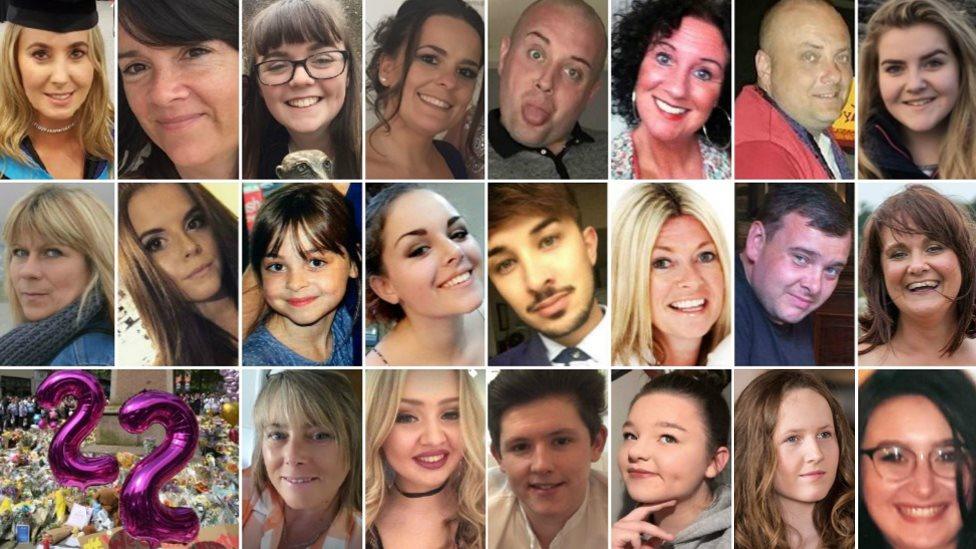
- Published20 August 2020
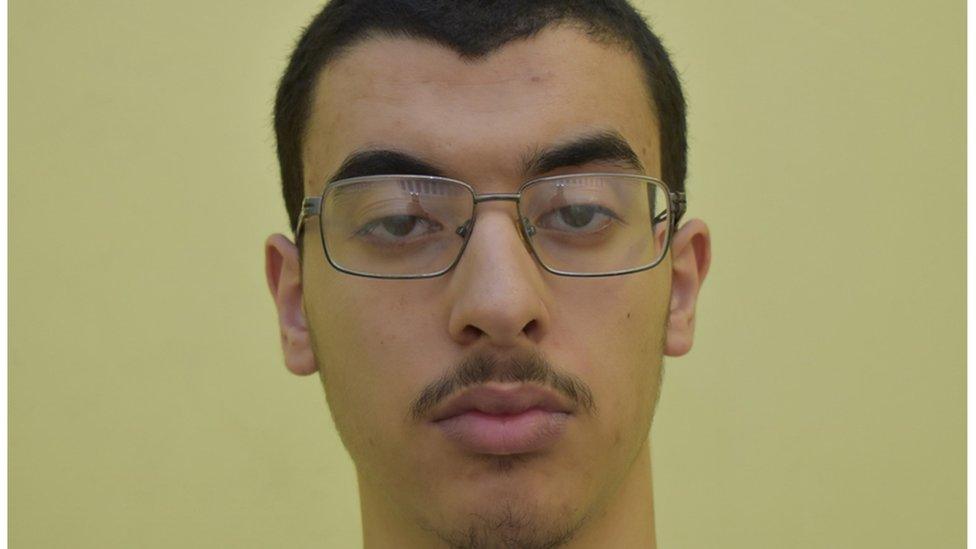
- Published17 March 2020
